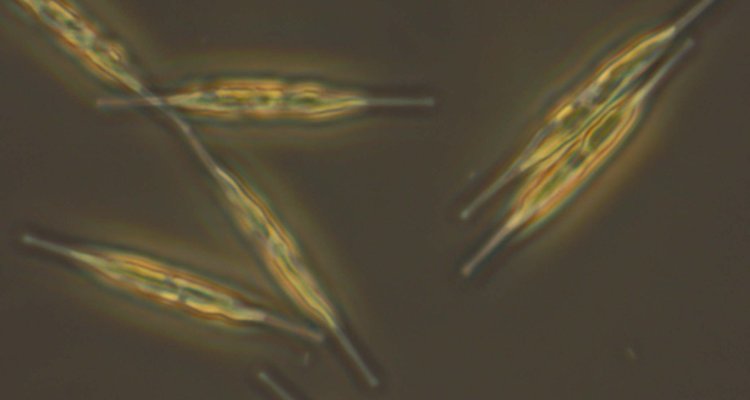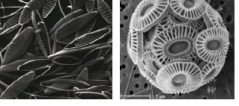
Project
Microalgae cultivation for the production of biomass-based sustainable cement and energy
Worldwide a lot of cement is produced. It is part of concrete, today the most chosen material for construction. This cement production is responsible for about 7% of human CO2-emissions. These emissions could be significantly reduced if minerals from biomass could be used as a resource for cement production. This could be combined with combustion of the biomass yielding green energy.
Introduction
Micro-algae are very efficient in biomass production and do not compete with food production because they demand no fertile soil for cultivation. If in the future micro-algae will be produced on a bigger scale in the bio-based economy, it might be interesting to use their mineral building capacity for cement production. It will be investigated if the algae can be cultured with different waste water streams as a source of nutrients and minerals. Two groups of algae are of interest: diatoms and coccolithophores, as they have skeletons composed of silica and calcium carbonate respectively, the minerals used for cement.

Aim and research question
The aim of the project is to evaluate the potential of algal biomass for simultaneous biocement and primary energy production.
Approach
The first step is to select promising algae species based on their oil content and silica/calcium carbonate content. Also their growth rate and demands for cultivation are important selection criteria.The mineral rich ashes derived from the algae will be characterized and quantified. It will be attempted to change the composition if it is required for optimal cement production. For example the chlorine content and the heavy metal concentration of the biomass might be of importance.
Optimal conditions for cultivation of these algae in a photo-bioreactor will be investigated and modelled. First it will be assessed which process parameters have the biggest influence. The aim is to get a better understanding of compound and energy flows in the algae towards the production of biomass, oil and cell wall mineral. Experiments will be performed to manipulate the oil and mineral composition of the algal biomass by changing for example the medium composition.
The results will be translated into recommendations for a pilot scale production. Also an assessment of the environmental benefits will be made by making mass and energy balances and looking at the carbon footprint.
Thesis projects
This is a combined project at two departments: Bioprocess engineering together with Environmental Technology. Within this project there are various possibilities for doing a BSc or MSc thesis in one or both research areas. If you are interested in doing a BSc or MSc thesis, feel free to contact me.
References
1. www.isdr.org
2. www.vims.edu